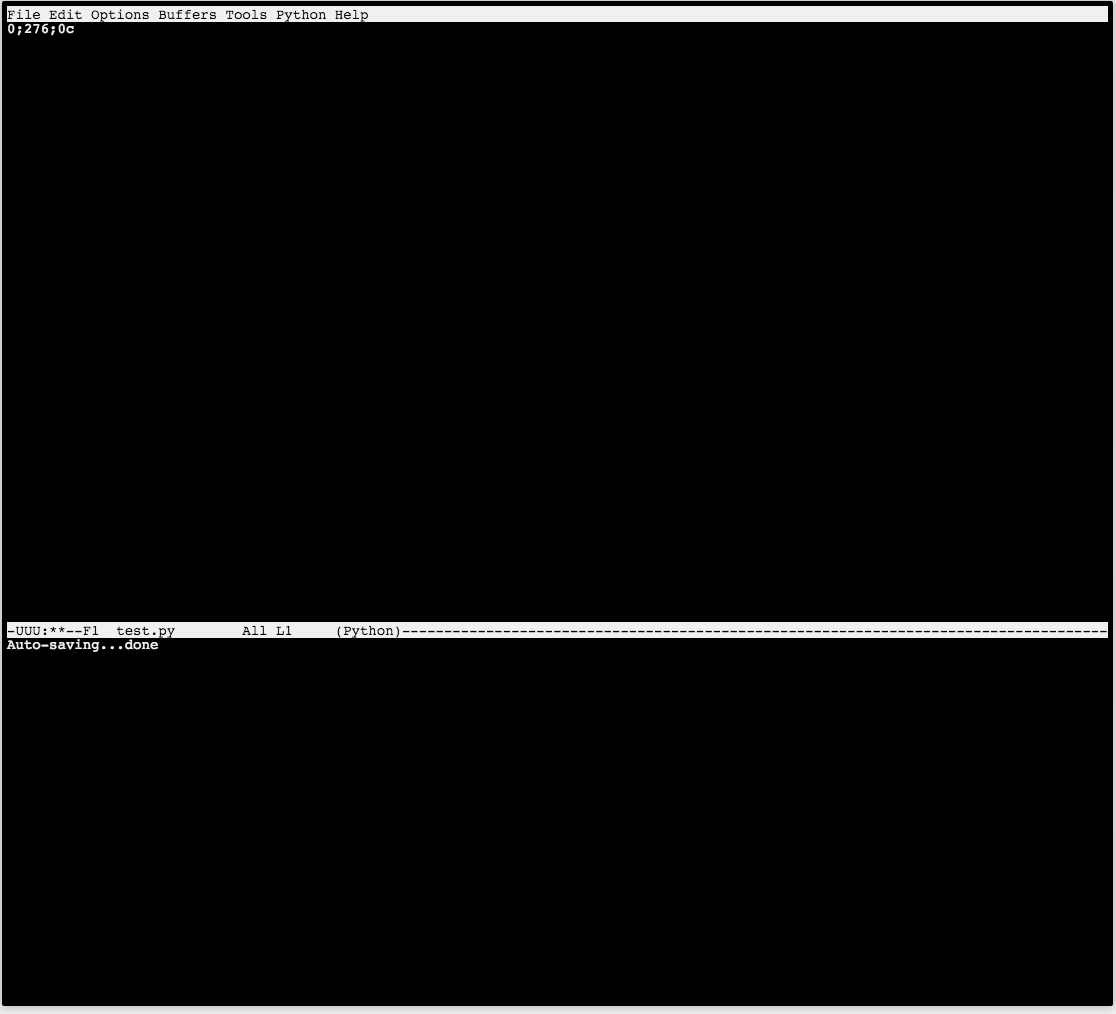How can I reset the default behavior of no prepending (but still being able to use -nw) and not having the bottom half of my terminal be black space.
Having emacs test.py -nw -Q doesn't solve the issue, emacs test.py -Q doesn't result in the characters but it does produce a window that I'd rather not have.
I'm using emacs within a python jupyter shell, my version is GNU emacs 23.1.1, echo $TERM returns xterm.
As additional clarification, if I fully expand my terminal window, the emacs editor will only fill about half of the space. It isn't being filled with the "help editor" as sometimes happens.


echo $TERMunder your terminal. Also, I don't know what "python jupyter shell" is, but it doesn't look like the name of a terminal emulator, more like the name of a shell.